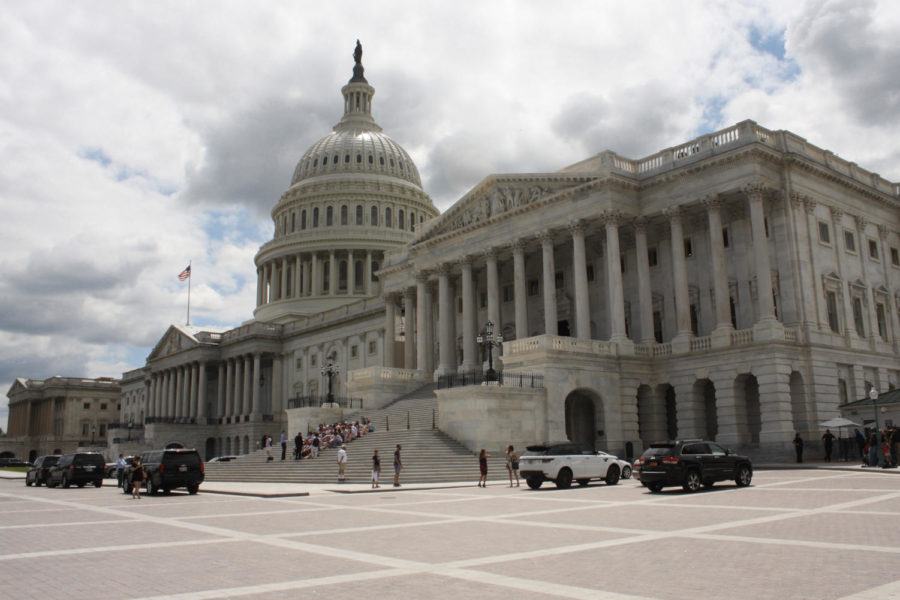College Dems across nation call for college student rescue checks
A view of the U.S. Capitol Building on July 25, 2017, in Washington, D.C.
April 30, 2020
EDITOR’S NOTE: With campuses emptied and University life brought to a halt, student journalism is in a tough spot right now. We’re asking our readers to please support the work of our current staff, as well as the next generation of Pitt student journalists, by donating here. Thank you for your support!
More than 20 of the country’s statewide College Democrats groups called Thursday for Congress to extend economic rescue checks to all American adult dependents in the wake of the coronavirus pandemic.
The coalition is encouraging Congress to support and fast-track H.R. 6420, the All Dependent Children Count Act, sponsored by Rep. Angie Craig, D-Minn. The bill would expand eligibility for relief checks to children younger than 19, students 24 and younger and no age limit for adults who are disabled. It currently has nearly 150 cosponsors, both Democratic and Republican, in the House.
Daisy Confoy, the president of Pennsylvania College Democrats, said in a press release that college students claimed as dependents have significant expenses that are being overlooked by Congress.
“The average college student carries $29,000 in debt,” Confoy said. “By ignoring the dire financial situation of college students and dependents, Congress is leaving us behind.”
Confoy said the main component of the College Democrats’ action is a letter campaign hosted through the Action Network. The site allows students to write letters directly to their representatives.
“We’re hoping for thousands and as many as it takes for this to get national attention,” Confoy said.
The $2.2 trillion economic rescue package signed into law by President Donald Trump in late March included $1,200 checks to most American adults, with $500 per dependent child younger than 17 years old. The CARES Act left out an overwhelming majority of older high school students and those currently attending college, who are likely listed as dependents on their parents’ tax returns.
Though college students did not receive $1,200 checks, some are obtaining federally-funded emergency financial aid grants of around $1,000, depending on school-specific eligibility. To further aid students, the CARES Act also suspended student loan payments until Sept. 30 without penalty.
Spokespeople for the leaders of the Senate Committee on Finance and House Committee on Ways and Means did not immediately respond to requests for comment.
Confoy said she contacted each state’s College Democrats chapter, and 22 joined the coalition immediately. She said she is open to changing the petition to gain more support, though.
“We’ll do direct outreach to the states that haven’t signed up yet and ask them if there’s anything that needs to be added or altered,” Confoy said. “There’s no way we could cover everything in our first go around.”
Confoy said she also hopes to make this a bipartisan effort.
“Everyone is struggling right now,” Confoy said. “There are issues that affect us based on income and employment status that go beyond party lines.”
Confoy said college students will face problems even after they graduate that a one-time check might not solve.
“Too many will graduate this May into a recession and a global pandemic and struggle to find employment,” Confoy said. “I don’t even think a one-time check of $1,200 is enough for these times.”
She added that Congress shouldn’t ignore college students who help contribute to the national Democratic Party.
“College Democrats pour time and resources into helping the Democratic Party each year,” Confoy said. “The fact that such a financially vulnerable population has been blatantly ignored by Congress is abhorrent.”



